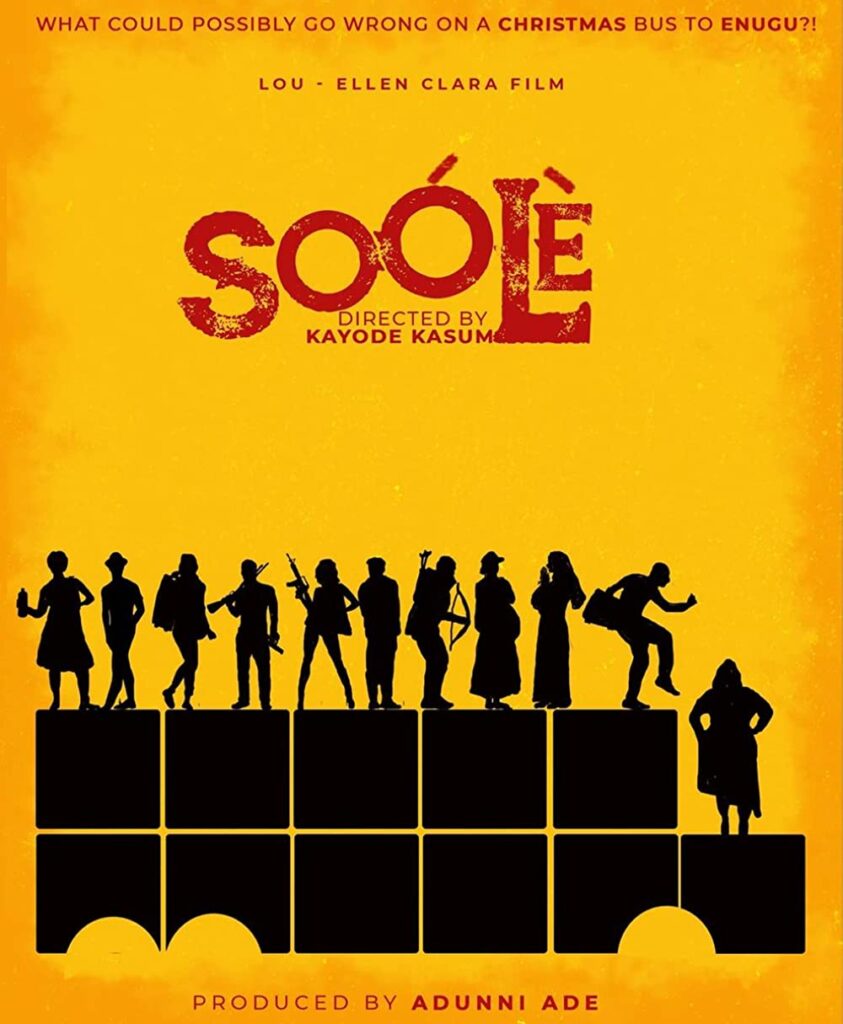Soole (2021): A Mixed Bag.
Soole seems like a movie I’d have written, or at least, pitched, partly because it’s a road-trip film and partly because it blends multiple genres. I admire road-trip films because there’s so much opportunity for conflict and growth when you let your characters go on a journey— a physical one that mirrors their philosophical one. If, like David Gerrold once said, “a story is about change…about a transformation,” then stories featuring road trips require that the characters not only change location but also, if the writer has written something cohesive, undergo an internal, psychological transformation as well. Some favorites films in this category include, the coming-of age masterwork by Alfonso Cuaron, Y Tu Mama Tambien (2001), the partly autobiographical Almost Famous (2000), and Best Original Screenplay winner, Little Miss Sunshine (2006). As far as films that blend genres go, the most common examples would be the comedy-dramas of the Mumblecore movement such as Frances Ha (2012), Mistress America (2015), and Lady Bird (2017); Edgar Wright’s Cornetto Trilogy, Shaun of the Dead (2004), Hot Fuzz (2007), and The World’s End (2013); and virtually every film by the Coen brothers. Filmmakers combine styles and genre conventions all the time, playing around with seemingly discordant tones to create a certain response in the audience. It’s an exercise that needs to be carried out with a deft hand. Knowing when to switch from one tone to another is just as important as how to achieve this. The most recent example I can give of this is from Parasite (2019). The midpoint where the Park family are celebrating the success of their strategy is the calm before the storm— the storm being the arrival of the former housekeeper— and it is done so well that it never feels like an inorganic progression of events. From there, for the Parks, it’s an inevitable downward plunge to the bloody climax. Soole has similar moments where an action or discovery changes the course of the story. One instance is the moment the passengers open the bag and find out that it’s filled with dollar bills. The movie stops being a comedy-drama about a group of people taking a trip together and shifts gears into some kind of thriller. The confrontation with the police solidifies this as the officers are swiftly and easily dealt with after attempting to wrest the bag from them. It is expected that the passengers would face some opposition by merely being in possession of the money, and that all their plans to spend and enjoy the loot are about as definite as the shifting shapes of sand dunes in the desert. Not long after, the passengers are attacked when they make a stop. Most of them are murdered while the survivors are kept prisoner. The climax becomes a gory action-adventure-type deal straight out of Robert Rodriguez, especially his 1996 film, From Dusk till Dawn, written by none other than Quentin Tarantino. The film’s attempt at plot twists and genre subversion do not land as well as they should because once the shock value wears off, we realize that was all it was— shock. An attempt by the filmmakers to pull a “bet you didn’t see that coming, did you?” moment on the audience. Subversive films are meant to, in their employment of unconventional tropes, reveal something deeper about the genre or society. For instance, when Mia and Sebastian do not end up together in La La Land (2016), despite such a conclusion being a staple of the romantic movie-musical, it is an attempt by the filmmakers to subvert the audience’s expectations (and not merely shock them) and also drive home the theme in the form of an unspoken question permeating every corner of the film’s world: “How much are you willing to give up in the pursuit of your dreams?’ This also happens in 500 Days of Summer (2009) when Summer and Tom do not eventually become a couple. The film asks us to turn the mirror on ourselves and consider why in our popular culture, we are inundated with stories of such scenarios (where the beautiful male and female leads always get together) when real life is a lot more unpredictable and harsher than that. Soole’s has some merits though and perhaps the central idea of not judging a book by its cover is meant to be applied to the wild swerves the story takes on the road to its destination. However, the destination does not justify this. In films that switch genres halfway, there are hardly any examples of the story returning to its initial tone. But this is what Soole does. The story ends on a happy note, or at least, that’s what the film tells us. The characters are dancing, happy that they’ve gotten their money, when just a couple minutes ago in the runtime, bullets and blood were flying everywhere. There’s a reason Parasite (2019) and Burning (2018) do not end on a light note. Once things change and the story shifts into darker territory, there is no going back. Failure to properly blend genres aside, Soole’s issues stem from the major problem plaguing several other mainstream Nollywood releases: the characters. The focus seems to have been on giving the audience an experience of something familiar (a noble goal) such as a bus trip from Lagos to the South Eastern part of the country, however, without compelling characters to anchor this idea. All we’re left with are, like a fellow critic said, fine overhead shots of the bus winding through the roads. I am of the opinion that if your character’s why is strong enough, it can support the most basic of premises. Doesn’t matter if the movie is about a man riding on a bicycle from Zaria to Calabar, the reason he is making the journey, braving the horrors of the road to get there in time, is the story; everything else is artifice. The characters in Soole do not get much in the way of motivation.

